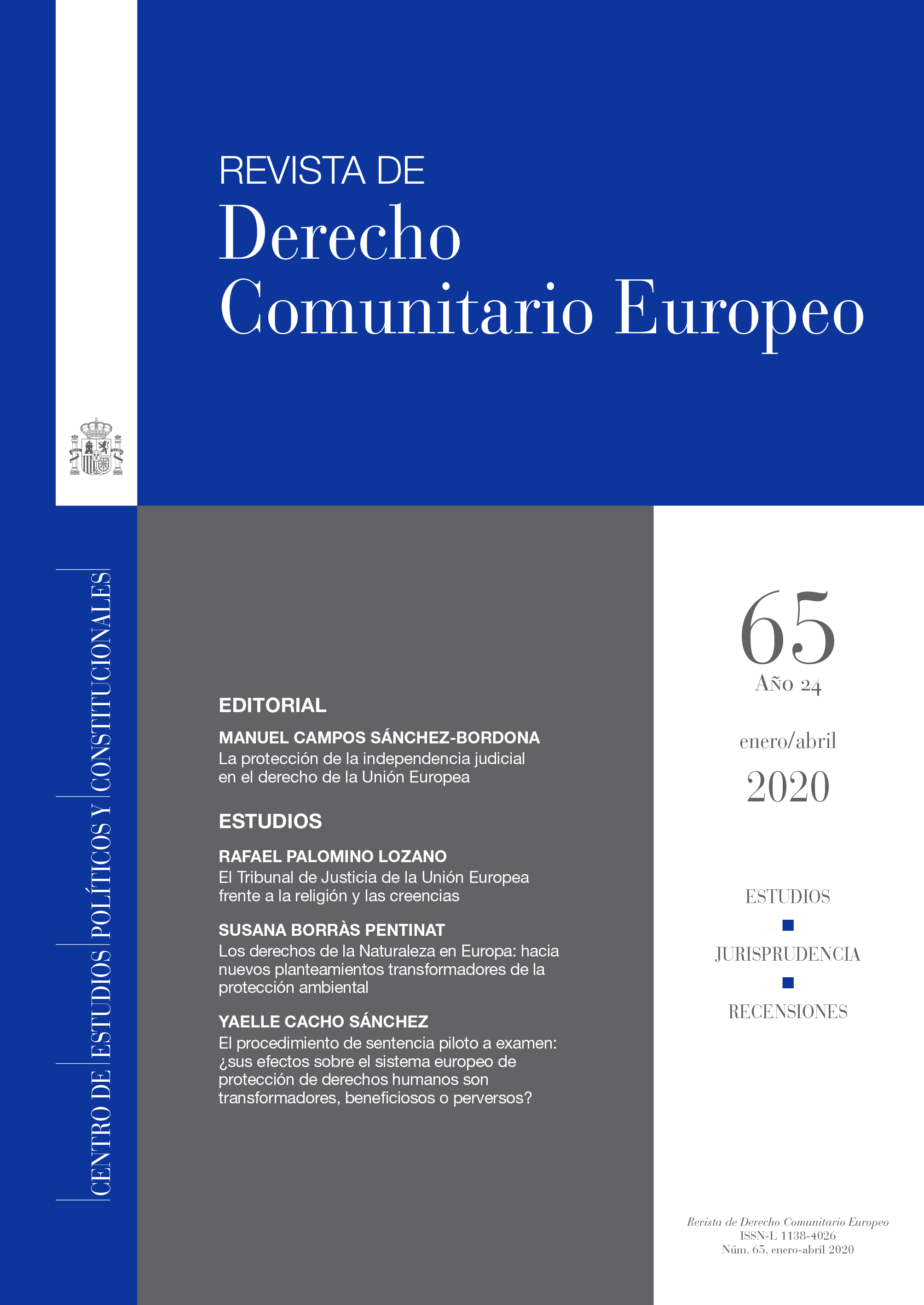Extraterritorial application of the European Convention on Human Rights. From jurisdiction, as a preliminary objection, to responsability
DOI:
https://doi.org/10.18042/cepc/rdce.78.03Abstract
The incoherence and casuistry attributed to the Strasbourg Court’s approach to the extraterritorial application of the European Convention are, to a large extent, a consequence of the weight of the context in its decision in politically sensitive cases. This in turn responds, ultimately, to the Court’s need to seek the balance between the broadest protection of the rights enshrined in the Convention and the perception of its judgments by the States Parties.
The functional approach to the concept of jurisdiction can serve to nuance the weight of the context in the final decision, reducing the condition of jurisdiction as a preliminary objection that prevents the Court from having to rule on the merits of these cases, thus shifting the center of gravity of its examination towards responsibility.
It would be unrealistic to think of this approach as a definitive solution, which would make the weight of the context disappear in these complex cases, but at least it can make it easier for the Court to rule on possible violations of rights by the States Parties to the Convention outside their territory, showing that Europe’s commitment to human rights is not diluted when crossing its borders.
Published
Issue
Section
License
Copyright
Submission of a manuscript to the RDCE implies having read and accepted the journal's editorial guidelines and instructions for authors. When a work is accepted for publication, it is understood that the author grants the RDCE exclusive rights of reproduction, distribution and, where appropriate, sale of his manuscript for exploitation in all countries of the world in printed version, as well as any other magnetic, optical and digital media.
Authors shall transfer the publishing rights of their manuscript to RDCE so that it may be disseminated and capitalised on Intranets, the Internet and any web portals and wireless devices that the publisher may decide, by placing it at the disposal of users so that the latter may consult it online and extract content from it, print it and/or download and save it. These activities must comply with the terms and conditions outlined on the website hosting the work. However, the RDCE authorises authors of papers published in the journal to include a copy of these papers, once published, on their personal websites and/or other open access digital repositories. Copies must include a specific mention of RDCE, citing the year and issue of the journal in which the article was published, and adding a link to the RDCE website(s).
A year after its publication, the works of the RDCE will be under the Creative Commons Attribution-Noncommercial-NoDerivative 4.0 International license (CC BY-NC-ND 4.0), which allows third parties to share the work as long as its author and its first publication is indicated, without the right to commercial exploitation and the elaboration of derivative works.
Plagiarism and scientific fraud
The publication of work that infringes on intellectual property rights is the sole responsibility of the authors, including any conflicts that may occur regarding infringement of copyright. This includes, most importantly, conflicts related to the commission of plagiarism and/or scientific fraud.
Practices constituting scientific plagiarism are as follows:
1. Presenting the work of others as your own.
2. Adopting words or ideas from other authors without due recognition.
3. Not using quotation marks or another distinctive format to distinguish literal quotations.
4. Giving incorrect information about the true source of a citation.
5. The paraphrasing of a source without mentioning the source.
6. Excessive paraphrasing, even if the source is mentioned.
Practices constituting scientific fraud are as follows:
1. Fabrication, falsification or omission of data and plagiarism.
2. Duplicate publication.
3. Conflicts of authorship.
Warning
Any breach of these Rules shall constitute a ground for rejection of the manuscript submitted.


